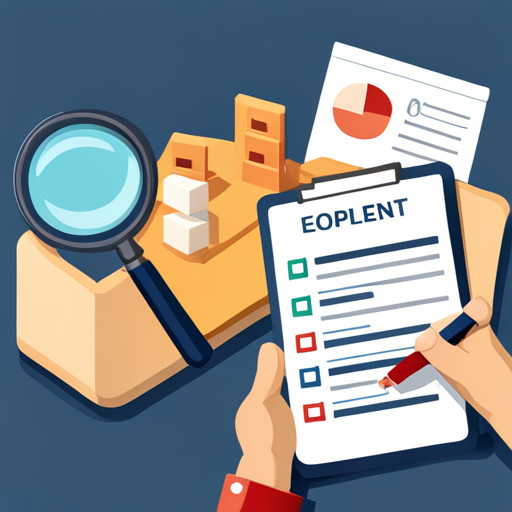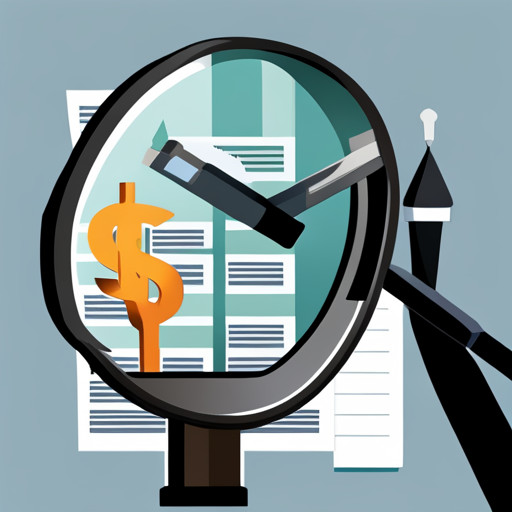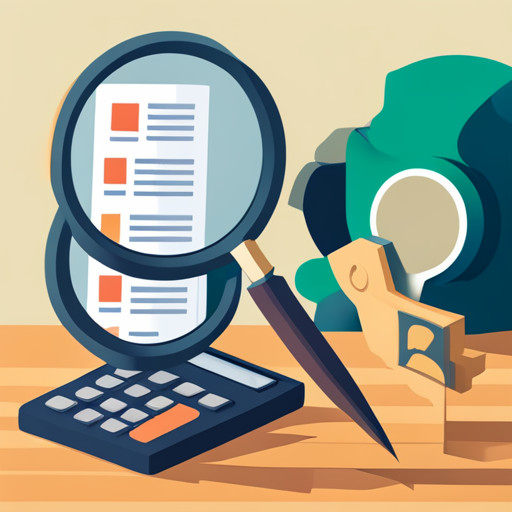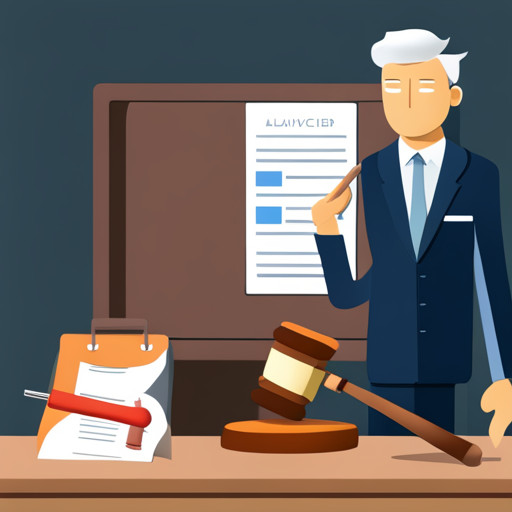Claim Negotiation Checklist and Worksheet with Helpful Tips
Navigating the labyrinth of claim negotiation necessitates a meticulous approach. This article elucidates the intricate steps involved, from incident reporting to settlement finalization.

It underscores the pivotal role of evidence, demystifies the negotiation process, and provides guidance on claim valuation.
Furthermore, it highlights the significance of legal advice and elaborates on post-negotiation proceedings.
This comprehensive checklist and worksheet serve as invaluable tools for a systematic and effective claim negotiation journey.
Key Takeaways
- Gather evidence and file a claim, including reporting the incident to the police and taking pictures/videos of the accident scene.
- Calculate the value of your injury claim, including medical expenses and lost wages, and include an amount for pain and suffering.
- Be organized and prepared during negotiations, avoiding adjuster tactics and justifying the amount you're asking for pain and suffering with medical notes and an injury diary.
- Consider consulting an attorney for a free case review and to determine the worth of your claim, and consult them if negotiations break down.
Understanding the Basics of Claim Negotiation

Understanding the basics of claim negotiation involves a systematic process that includes gathering and organizing evidence, calculating the injury claim's value, and engaging in a series of communications with the insurance adjuster to reach a satisfactory settlement.
Knowledge of common negotiation tactics is crucial in this process. These tactics may include presenting a counter-offer or justifying the claim's value based on medical documentation and loss of income.
Familiarity with the adjuster's role is also essential, as the adjuster typically represents the insurance company's interests and aims to minimize the claim's payout. The adjuster's responsibilities include evaluating the claim and negotiating the settlement, requiring a strategic and informed approach from the claimant.
Overall, a comprehensive understanding of these key components can significantly influence the outcome of the claim negotiation process.
Steps to Properly File Your Claim

Proper documentation of the incident, including pictures, videos, and witness contact information, is a crucial step in the initiation of the injury compensation process. Proper documentation not only strengthens the claim but also counters potential adjuster tactics aimed at reducing the compensation.
Thorough documentation highlights the severity of the incident and related injuries. Evidence aids in establishing fault, a critical factor in the claim process. Documentation assists in calculating the claim value, which includes medical expenses and lost wages.
Understanding the importance of documentation and handling adjuster tactics is vital in the negotiation process. It's advised to keep all records and information organized, ensuring a smoother negotiation process.
The Role of Evidence in Claim Negotiation

The role of evidence in the process of settling an injury compensation case is often paramount, as it aids in establishing the validity of the incident, the extent of the injuries, and the determination of fault.
The importance of evidence in negotiating a claim cannot be overstated, as it provides factual context for the claimant's assertions. Accurate, comprehensive documentation substantiates the claim, ensuring that the negotiation process is grounded in verifiable facts. This facilitates a more efficient, fair negotiation process.
Understanding the role of documentation in claim negotiation is crucial for both claimants and insurers. Thorough, organized evidence not only expedites claim processing but also enables an equitable determination of compensation, underscored by the objectivity of the presented evidence.
Decoding the Injury Claim Negotiations Process

Decoding the process involved in injury compensation discussions necessitates a comprehensive grasp of several key steps. These steps include the calculation of injury value, drafting of a demand letter, and the subsequent back-and-forth with an adjuster. This process is heavily influenced by the psychology of negotiation and common negotiation tactics.
The calculation of injury value involves a detailed analysis of medical expenses, lost wages, and the impact on quality of life.
Drafting a demand letter requires a comprehensive summary of the claim and a clear statement of the desired compensation.
The negotiation with the adjuster is a strategic process where each party presents their case and works towards a mutually acceptable resolution.
Understanding these steps can significantly aid in navigating the complex terrain of injury compensation negotiations.
Estimating the Value of Your Injury Claim

Estimating the value of an injury compensation case involves several considerations, including the total medical expenses incurred, income lost due to the inability to work, and the extent of the pain and suffering experienced. A methodical approach is required in order to negotiate effectively with insurance adjusters. Maximizing compensation in injury claims necessitates an understanding of appropriate valuation ratios.
The table below provides an overview of the key variables to consider:
| Variable | Description |
|---|---|
| Medical Expenses | Total cost of treatment and rehabilitation |
| Income Loss | Total income lost due to inability to work |
| Pain and Suffering | Subjective measure of the inconvenience, distress, and trauma experienced |
This procedure ensures a comprehensive and fair assessment, providing a solid foundation for negotiation.
The Art of Successful Claim Negotiations

The determination of injury claim value, a previous point of focus, paves the way for the subsequent stage of successful claim negotiations. This phase underscores the importance of communication and necessitates strategies for effective negotiation.
The negotiation process entails presenting well-documented evidence to validate the claim, as well as engaging in informed discussions with the adjuster.
Key factors for successful negotiation encompass:
* A thorough understanding and application of insurance procedures and terminology.
* The ability to articulate the claim value convincingly, backed by well-documented evidence.
* Persistence and patience in communication, coupled with the readiness to counter low initial offers.
These strategies can significantly enhance the negotiation process, thereby increasing the chances of securing a favorable claim settlement.
Determining the Worth of Your Injury Claim

Determining the worth of an injury claim necessitates a thorough evaluation of various factors such as accident-related costs, incurred medical expenses, lost wages due to inability to work, and the degree of pain and suffering experienced. When preparing evidence to support a claim, it is essential to consider all these factors. Consulting professionals such as attorneys and medical experts can provide valuable insights and expert testimony to strengthen a claim.
| Factor | Method of Calculation | Importance |
| Accident-related costs | Itemization of bills | Direct impact on claim worth |
| Medical expenses | Detailed medical bills | Indicates severity of injury |
| Lost wages | Paystubs, employer verification | Reflects economic impact |
| Pain and suffering | Doctor's notes, personal diary | Subjective but significant factor |
These elements, when properly evaluated and presented, can ensure a comprehensive and fair valuation of an injury claim.
The Importance of Legal Advice in Claim Negotiation

Involvement of legal counsel in settlement discussions can significantly contribute to the successful resolution of injury cases, as attorneys bring to the table their expertise in navigating through complex insurance laws and regulations. The importance of legal advice in claim negotiation cannot be overstated, particularly in light of common adjuster tactics to watch out for.
- Legal advice provides a robust understanding of the nuances of insurance claim negotiation, thereby equipping claimants with the necessary skills to counter adjuster tactics.
- Lawyers are adept at calculating just compensation, ensuring that claimants do not settle for less than they deserve.
- Legal counsel can scrutinize settlement agreements for hidden clauses, safeguarding the rights of claimants.
Thus, legal advice forms an indispensable component of successful claim negotiation, ensuring fair settlement.
Settling Your Claim: What Comes After Negotiation

Upon reaching an agreement with the adjuster, it is vital to confirm the terms of the settlement and the compensation amount in writing, thus commencing the final phase of the injury case resolution process.
Preparing documentation is a meticulous process that involves updating the negotiations worksheet with the final settlement information. This worksheet, an important piece of evidence throughout the negotiations, should be preserved for record-keeping purposes.
Being aware of negotiating tactics can provide an advantage during this final stage. It is also necessary to comprehend how medical liens will be paid from the settlement.
Ensuring a clear understanding of the terms and conditions of the agreement is crucial before signing the settlement agreement, signifying the conclusion of the claim process.
The Role of Follow-Up in Claim Settlement

The process of follow-up in settlement resolution necessitates diligent attention to detail, as it involves confirming the terms of the agreement in writing, understanding the payment of medical liens, and maintaining thorough records for future reference.
It is during this stage that the importance of communication in follow-up becomes crucial.
- Seamless exchange of information between parties ensures adherence to agreed-upon terms.
- Regular updates on the payment status of medical liens prevent potential disputes.
- Accurate record keeping serves as a reference for future settlements.
Strategies for resolving disputes in claim settlement, including negotiation, mediation, and arbitration, often rely on the robustness of the follow-up process. Ensuring that all aspects of the settlement are executed as agreed is paramount to the successful resolution of claims.
Frequently Asked Questions
What Are Some Common Mistakes People Make During the Claim Negotiation Process?
Common negotiation missteps during the claim process include:
- Inadequate preparation
- Hasty acceptance of initial offers
- Failure to adequately justify demands
Overlooking evidence, such as medical documentation or accident scene details, can significantly devalue a claim. Miscommunication or misunderstanding of insurance terminology and procedures can also lead to unfavorable outcomes.
Additionally, emotional reactions, lack of patience, or an absence of clear strategy can hinder effective negotiation.
Can I Negotiate a Claim on My Own or Should I Hire a Lawyer?
In the labyrinth of claim negotiations, the choice between self-representation and hiring a lawyer can be pivotal.
Self-representation Pros include cost-savings and direct control, but lack of expertise may lead to suboptimal outcomes.
A lawyer's role in negotiations, on the other hand, brings expertise in insurance law and negotiation tactics, potentially yielding a more favorable settlement. However, this comes with associated legal fees.
Thus, the decision hinges on individual circumstances, including the complexity of the claim and personal comfort with negotiation.
How Long Does the Claim Negotiation Process Typically Take?
The duration of the claim negotiation process can vary significantly, depending on the complexity of the claim, the degree of dispute between parties, and the responsiveness of the involved insurance companies. Typically, this negotiation timeline may range from a few weeks to several months.
However, in more contentious or complex cases, the process could extend to over a year. It is crucial to remain patient and persistent throughout this period.
How Do I Handle a Dispute With the Insurance Adjuster During Negotiations?
During negotiations, disputes with insurance adjusters can arise. Awareness of adjuster tactics is paramount for efficient dispute resolution. Tactics might include delays, low initial offers, and attempts to discredit claims.
If a dispute emerges, it's advisable to remain patient, reassert the validity of the claim and provide supporting evidence. Involving a neutral third party, such as a mediator, can also be beneficial.
If these methods fail, legal action may be necessary to resolve the dispute.
Can I Reopen a Claim Negotiation After Accepting and Receiving a Settlement?
Reopening a settled claim negotiation is generally infeasible, hence the importance of careful deliberation prior to accepting a settlement offer. A claim's closure post-settlement agreement signifies a legal resolution, precluding the possibility of future negotiations or alterations.
Nevertheless, certain exceptional circumstances may warrant a reconsideration, albeit rare. Understanding settlement regrets and reopening procedures is crucial, yet it is advisable to consult legal counsel when navigating such complexities.

This post has been generated by AI and was not reviewed by editors. This is Not legal advice. Please consult with an attorney.




